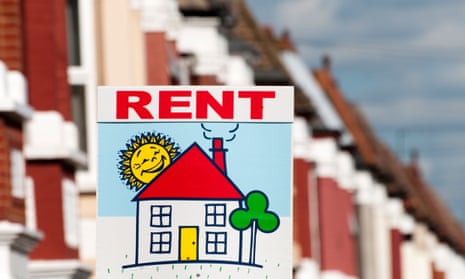‘Our policy is not to sell to coloured people.” That’s what a stunned Mahesh Upadhyaya was told when he tried to buy a house in Huddersfield in 1968. He went on to become the first person to bring a racial discrimination case under the new Race Relations Act. While the case was eventually dismissed on a technicality, the judge declared unequivocally that discrimination had occurred. It was a first and important step towards ridding a nation of the “rooms to let: no coloureds” signs that were commonplace in the 60s.
Fifty years later, Britain is, thankfully, a society far more tolerant of ethnic diversity. But a landmark high court ruling on Friday declared that government legislation is now actively creating racial discrimination in the housing market. The right to rent scheme demands landlords in England check the immigration status of tenants, with fines of up to £3,000 and a potential prison term if they fail to do so. The Observer first reported on this legal challenge last March.
It is shocking that in Britain in 2019 a court has determined that government policy is pushing landlords to discriminate against minority ethnic citizens. We have a right to expect the state to challenge racism wherever it exists, not to encourage it to proliferate.
But the court’s ruling is also entirely unsurprising. It is common sense that a policy that forces landlords to act as border agents, at risk of imprisonment if they get something wrong, will discourage them from renting to people who look different or speak differently from the majority of the population. While the government has refused to evaluate its policy, others have. Even before right to rent was rolled out nationally, an independent evaluation commissioned by The Joint Council for the Welfare of Immigrants, the charity that has tirelessly campaigned against it and took the case against the government, concluded that it made landlords less likely to rent to people with “foreign accents or names”. Since then, report after report has echoed these findings. The government ignored them.
Right to rent is a key component of the hostile environment policy which aims to make Britain such an intolerably inhabitable place for undocumented migrants that they are driven out of the country. Instead of investing in a border force, Theresa May’s approach is to force ordinary citizens – landlords, doctors, bank clerks – to police their neighbours and patients, free. And the government’s dirty secret is that, even as it does this, it is driving more and more young people who have grown up in Britain, and call it home, towards undocumented status, by making it ever more difficult to establish their right to remain.
The Home Office charges extortionate fees for immigration applications: young people not born in Britain but who grew up here will pay at least £8,000 over multiple applications over 10 years once they turn 18 before they can even apply for indefinite leave to remain. Home office bureaucracy is Kafkaesque: officials are incentivised to reject applications for the tiniest of errors and there is no right of appeal or legal aid for most type of immigration cases.
There is no evidence that the hostile environment is working on the government’s own terms: the number of voluntary departures from the UK has fallen. But there is plenty of evidence that the hostile environment is making Britain a more racially discriminatory country, as it catches people who have legally lived, worked and paid taxes for decades in its tentacles – people who end up denied life-saving NHS treatment or wrongly deported to countries they don’t know.
May has long been aware of the effects of the hostile environment. It’s hard to conclude anything other than that she believes a more racist Britain is a price worth paying in order to signal that she is tough on immigration control. The tragedy is that voters are far more pragmatic on immigration than she is. Just in whose name does she think she is fostering this insidious racism? Not the British public’s, that’s for sure.
